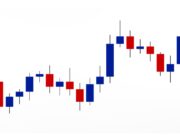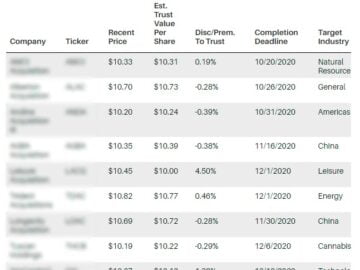Seeking out great stocks to buy is essential, but many would say it’s even more important to know which stocks to steer clear of. A losing stock can eat away at your precious long-term returns. So, figuring out which stocks to trim or get rid of is essential for proper portfolio maintenance.
Even the best gardens need pruning and our team has spotted a few stocks that seem like prime candidates for selling or avoiding. Continue reading to find out which three stocks our team is staying away from this week.
Intel (INTC) made it to our list of stocks to avoid after a so-so earnings call. The company beat analyst EPS estimates of $1.11, reporting adjusted earnings of $1.71 per share. But the company missed sales expectations and attributed a decline in its PC business to broader components shortages, which are likely to continue into 2022. For the third quarter Intel reported adjusted revenue of $18.1 billion, where analysts were looking for revenue of $18.2 billion.
INTC was downgraded at Morgan Stanley, Mizuho and UBS and its price target lowered by numerous firms. Deutsche Bank analyst Ross Seymore lowered the price target to $55 from $58 and reiterated a Hold rating on the shares.
While Intel’s earnings report and guidance were ” mildly disappointing,” the more important news was the delay of the company’s analyst day to February 2022 and the early unveiling of its 2022 and mid-term financial targets, Seymore notes. The financial metrics yield earnings and cash flow “significantly below” Street expectations.
Morgan Stanley analyst Joseph Moore has consistently said that over $25B in capital spending “would be problematic.” He contends that guidance for $25B-28B “and higher in future years” puts the burden on double digit growth in 2023 and beyond, which he views as challenging given his more cautious view on hardware demand overall.
Next up is aerospace and defense technology company, L3Harris Technologies Inc. (LHX). The company provides defense and commercial technologies across air, land, sea, space and cyber domain. In the past six weeks, LHX stock has seen a downward trend in fresh estimates and bled nearly 5% in the same time period. Some analysts think the stock has more to lose.
Among analysts who have recently downgraded the stock is Goldman Sachs’ Noah Poponak who downgraded the stock from Neutral to Sell. Poponak told investors in a note on Thursday, “A deceleration in the U.S. defense budget growth rate will likely translate to a multi-year deceleration in L3Harris sales.” He added, “Margin upside that was driven by merger integration has now likely played out, leaving less upside to margin estimates.” With the stock significantly outperforming its large cap defense peers over the last six months, the analyst no longer sees a “relative valuation gap” in the stock.
The company also recently lowered its 2021 guidance range. L3Harris currently expects to generate revenues of $18.1-$18.5 billion, compared with the prior guidance range $18.5-$18.9 billion, during 2021. The company’s 2021 earnings are now projected to be in the range of $12.80-$13.00 per share, compared with the previous guidance of $12.70-$13.00.
Verizon’s (VZ) average analyst price target has decreased by around 60 cents in the past six months. It’s also concerning that VZ’s average broker recommendation has decreased by 0.28 in the past eighteen months and is currently just 2.7 (Hold); 19 analysts consider the stock a Hold, only 7 consider it a Buy, and 2 consider VZ a Sell.
VZ may seem to have an attractive beta for those seeking growth with low risk, but now is not the time to buy VZ. The stock’s price returns are disappointing to say the least. The problem with VZ isn’t lack of demand for their internet and cable service, it’s accessibility. Millions of consumers are willing to pay for VZ’s services but simply do not have access.
Verizon stock is down more than 11% YTD versus a 21% rise in the S&P 500 during the same period.
You might also like:
- A.I. Gamechanger Says “$2.50 Stock Set to Breakout Overnight”
- Mysterious Gold Leverage Just Announced
- Elon’s New A.I. Device is About to Shock the World
- Prepare Now Before This Looming $2 Trillion D.C. Shock
- Buy Elon Musk’s New $1 Play before June 30
- Write this ticker symbol down…
- The Crypto Melt-Up has Begun
- “A.I. is a Tidal Wave” – Here’s What to Buy
- Beware Executive Order 14067
- #1 AI Stock for 2024 and Beyond























